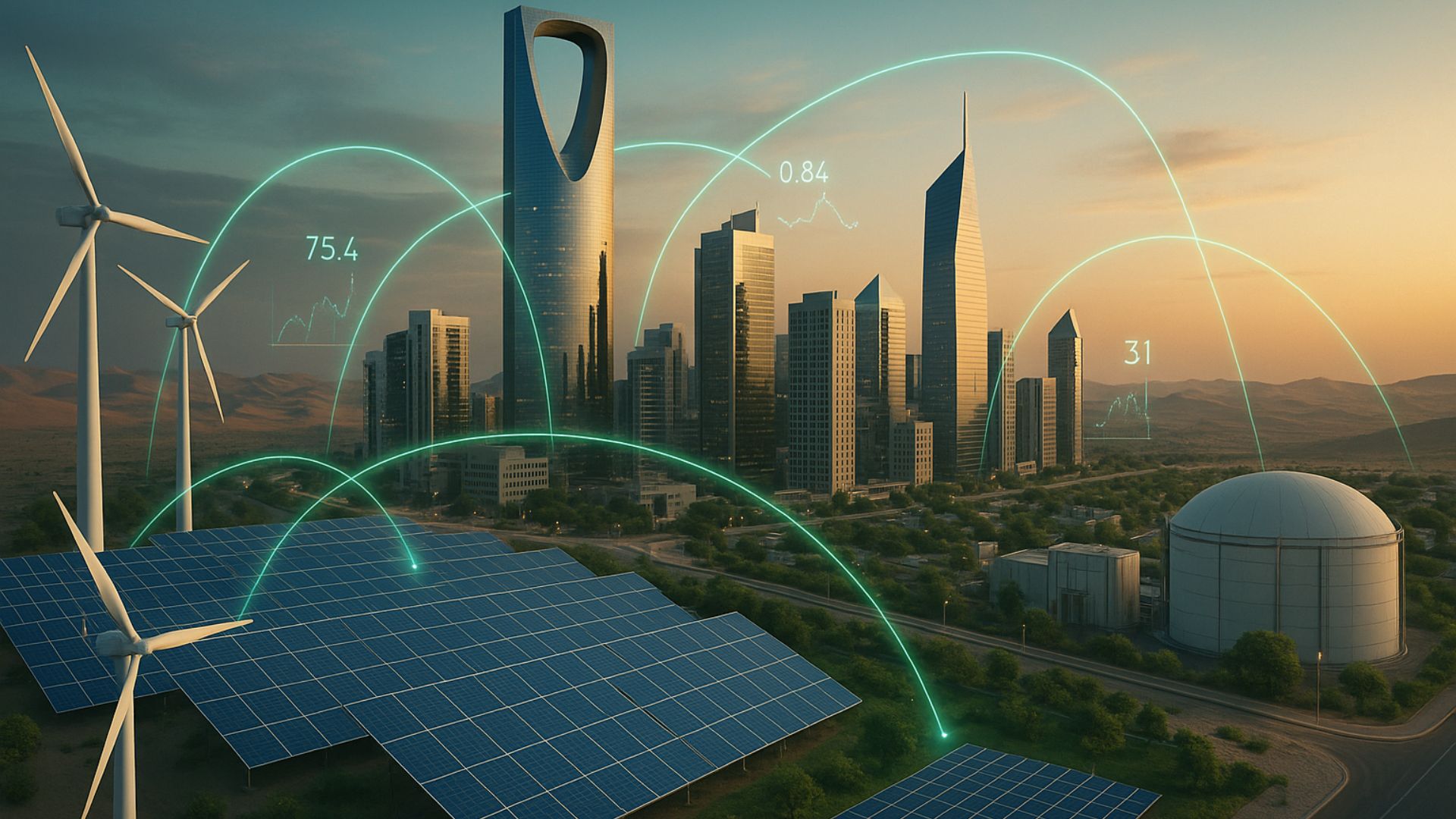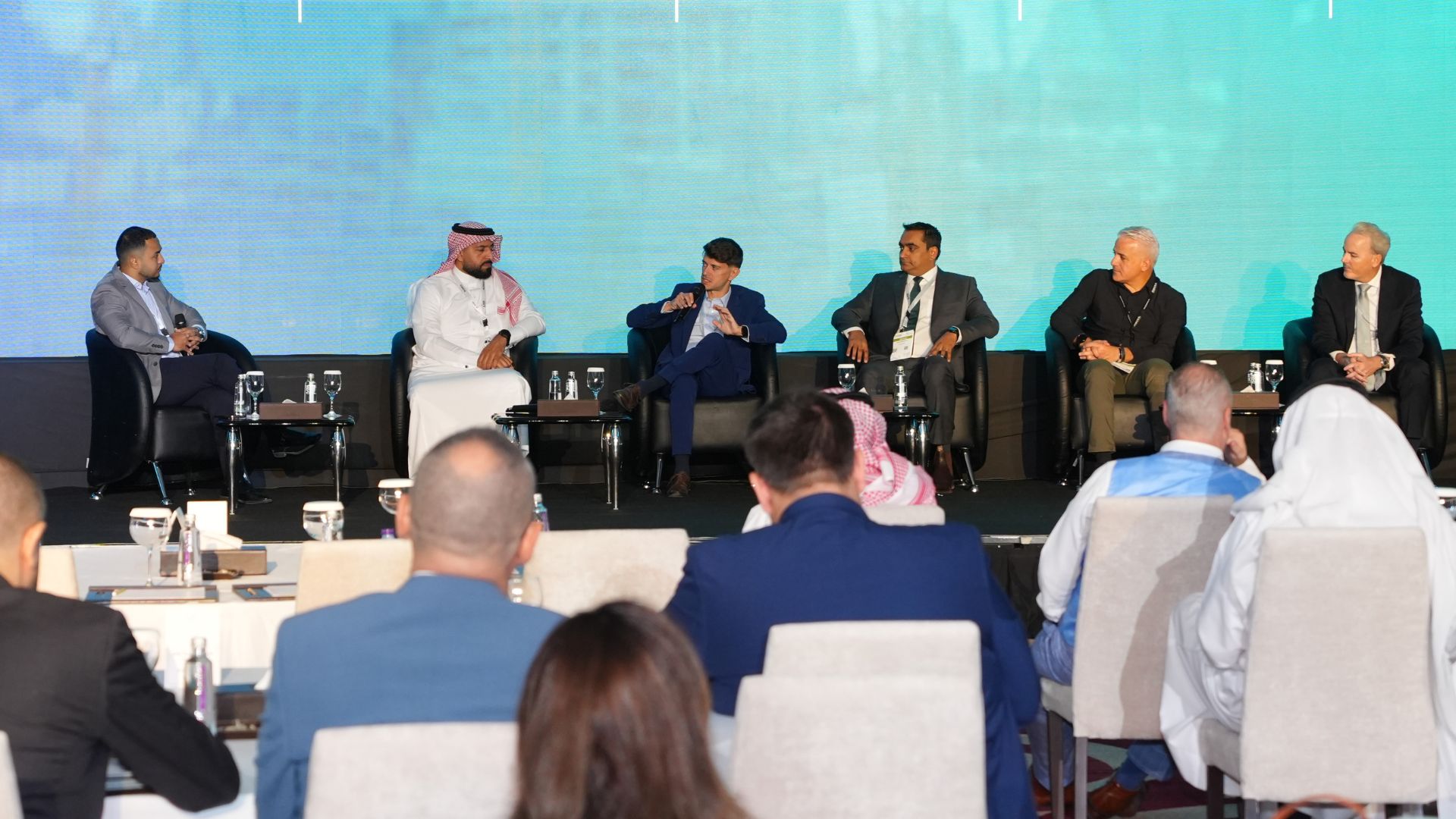- Blogs
- / How Climate Tech Innovations Are Shaping Saudi Arabia’s Smart Cities
Did you know that the giga-projects and Vision 2030 of the Kingdom are establishing world standards of sustainable smart cities? But stop and ask ourselves why this is important in the real world. We have all experienced the strain of climate change around the world, be it increased energy costs, increased heating in the summer, lack of water, or unexpected storms that affect daily life. Now, suppose that you construct whole cities in one of the most extreme climates on earth, where temperatures are sweltering, water is at a premium, and energy consumption is enormous. That is the challenge Saudi Arabia has.
Such a challenge is becoming an opportunity. As the Kingdom invests billions in giga-projects such as NEOM, Oxagon, Trojena, Alnama Smart City, and Mohammed Bin Salman Nonprofit City, climate technology is becoming the new key to sustainability and resilience. Such discussions will be at the forefront during CTF KSA 2025, the premier transformation and innovation conference of the built environment in the Kingdom.
Before we delve into the technologies that are driving this change, we should first explore why climate tech is so important to the Kingdom.
Climate Tech as the Backbone of Saudi Arabia’s Smart City Transformation
Why Climate Tech Matters for the Kingdom
Saudi Arabia is a city with special problems:
- The hot weather of summer requires a lot of energy to cool down.
- An arid climate with limited natural water resources.
- Carbon emissions from traditional urban development and fossil-fuel-based systems.
However, the same challenges make Saudi Arabia one of the world leaders in using climate-first solutions. Climate tech promises the possibility of creating smart cities that are liveable as well as efficient, resilient, and environmentally responsible.
Alignment with Saudi Vision 2030
In Vision 2030, a differentiated and sustainable economy has been targeted, and it has been committed to achieving a net-zero carbon emission by the year 2060. The key component of bringing this vision is climate tech.
Mega-projects such as NEOM and The Line are planned as fully renewable cities with zero carbon emissions. Red Sea Global is establishing new standards of sustainability in the sphere of tourism and hospitality, whereas Qiddiya incorporates climate-aware approaches into entertainment infrastructure. Not only are these projects transforming Saudi Arabia, but they are also being used as international case studies of what cities in the future can be like.
Key Climate Tech Innovations Driving Smart Cities
1. Renewable Energy Integration
The future cities of Saudi Arabia will operate on clean energy at a scale never seen before.
- The urban districts will receive uninterrupted and low-carbon electricity provided by solar farms and wind projects.
- Smart grids will be able to cope with the changes in demand and will be integrated with renewable supply.
- NEOM is at the forefront with its desire to run fully on renewable energy, something that will encourage the rest of the Kingdom.

2. Water Sustainability and Climate Tech
Water is life, and it is the most valuable resource in Saudi Arabia.
- Desalination plants with renewable power make sure that water is available without the excessive use of carbon.
- The smart leak detection systems reduce loss in distribution networks.
- Technologies that generate clean water by extracting humidity from the air supply, and resilience in dry areas.

3. Climate-Resilient Urban Infrastructure
Smart cities need to survive under the harsh weather conditions.
- The flood control, dust storm, and heatwave sensors enhance safety and minimise risk.
- High-tech construction material reduces emissions and increases the lifespan of the building.
4. AI and Data-Driven Climate Management
Artificial intelligence is rapidly becoming the intelligence of climate-smart cities.
- AI forecasts energy demand and manages renewable deployment in an optimal manner.
- Data centres facilitate real-time climate analytics and facilitate intelligent water, waste, and energy decisions.
- Smart cities are a middle ground between sustainability and economic efficacy.
The Role of Data Centres in Climate Tech Innovation
Data Centres as the Brains of Smart Cities
A very strong digital infrastructure stands behind every smart city. The information required to manage renewable energy, climate monitoring, and the smooth running of the city is processed, stored, and distributed by data centres.
Climate-Smart Data Centres
Data centres should be climate-smart to be in line with sustainability.
- Cooling systems that use renewable energy minimise energy requirements.
- Energy-efficient architecture cuts emissions.
- They become the unspoken climate tech innovators by functioning as healthy, green, efficient, AI-ready hubs.
This synergy will feature prominently in Data Centre Technology ConFex KSA 2025, where analysts will discuss how data centres will be used alongside climate to drive the giga-projects in Saudi Arabia.

Opportunities for Stakeholders at CTF KSA 2025
Why Attend Construction Technology ConFex KSA 2025?
These are the occasions where vision and reality come into play. Attendees will:
- Discover new and innovative climate technologies already defining giga-projects.
- Connect with project owners, developers, government authorities, and technology innovators.
- Learn to apply climate tech in real construction and operational settings.
Data Centre Technology ConFex KSA 2025: Climate Tech in Action
The event in the data centre will be a lens to:
- How digital infrastructure supports climate innovation.
- The technologies that transform cities into AI-ready, efficient, and sustainable cities.
Climate Tech as a Non-Negotiable in Smart Cities
Climate tech is no longer a nice-to-have; it’s a must-have. It is the only chance of giga-projects being delivered on time, at scale, within scope, and on budget.
Towards a Greener, Smarter Kingdom
Not only is Saudi Arabia shaping itself as a regional pioneer, but it is also an example of climate resilience and intelligent innovation globally. The Kingdom has made a significant move by ensuring that its cities will remain prosperous in the generations ahead by entrenching climate tech at the heart of urban development.
Conclusion
Climate tech is transforming the giga-projects of Saudi Arabia. It is changing the problems of heat, water shortage, and carbon emission into opportunities to develop sustainably. The Kingdom is an innovation, collaboration, and transformation hub with events such as Construction Technology ConFex KSA 2025 and Data Centre Technology ConFex KSA 2025.
Don't be among those who will miss this event; reserve your slots early enough.
Venue: Crowne Plaza Riyadh RDC Hotel on 22 October 2025. Saudi Arabia is not building smart cities; it is building a sustainable future.
